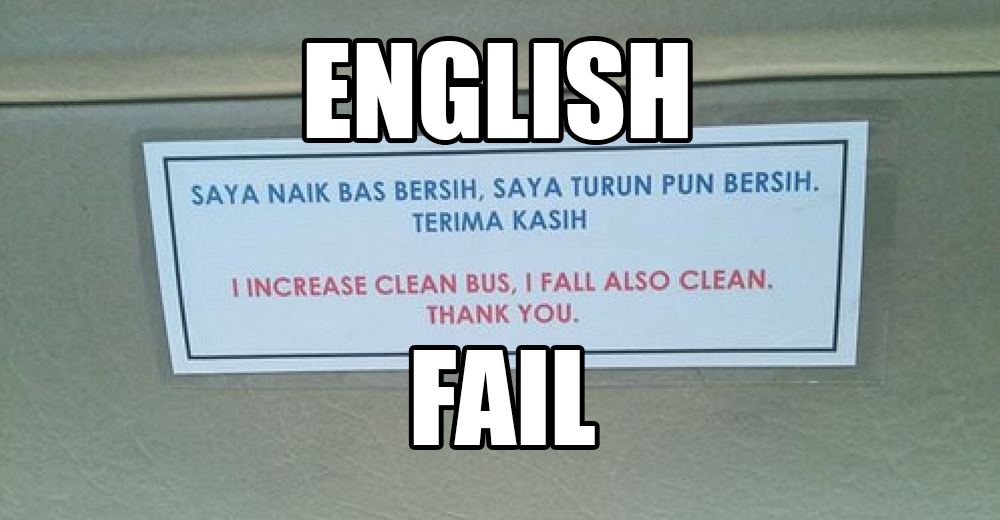Admitting to your own weaknesses is a sign of strength, and there is nothing to be ashamed of from admitting them.
If there were any lessons that I’d learned throughout my time in PEKUMA, it would be to admit your own weaknesses, flaws and mistakes no matter how hard it is.
The English proficiency of students in local universities is an issue under constant discussion.
It’s even appeared in reports and articles on why local graduates are having such a hard time getting jobs and competing with their peers upon entering the workforce.
Hence, it was very interesting to see the reaction of students when a confession post by an anonymous writer came out this morning, primarily concerning the English proficiency of UM FPP and FEP students.
A majority of the students were strongly against the post. Sarcasm and rage can easily be sensed in the comments, which I think were expressed on impulse upon reading the post.
However, it is not of my purpose to discuss a post by an anonymous person that does not have the balls to express him/herself in their true identity.
Rather I am purely interested in discussing the state of English proficiency among students, particularly in UM (and focusing more on FPP and FEP).
The problem with English proficiency among local university students is not an issue that grew overnight but rather a deeply rooted bad habit and culture.
In UM, I believe it is not hard to notice slide-reading by students during a presentation, serious grammatical errors in reports & presentations and most noticeably, a lack of confidence when conversing in English.
All of these bad habits and culture among UM students have brought about an obvious flaw in terms of English proficiency among students and even worse, the negligence of students towards this issue despite knowing the problem.
My time running UM Economics Society (PEKUMA) led me and my team to realise how this deeply rooted problem could potentially impact the growth of the society in terms of human capital development and competency of our faculty’s graduates in the long term.
We worked hard to improve the state of English proficiency among our students, namely by using English during PEKUMA meetings, events & activities, and by running training workshops to enhance the communication and writing skills of the team.
So the question is, should we be angry at an anonymous confessor who reminded us of our flaw that we have long known but have not chosen to recognise—or should we start to admit the problem that exists before us and take necessary steps to improve the situation?
Jack Ma once allegedly said, “If you are born poor it is not your fault, but if you are still poor at 35, then it is your fault.”
Inspired from this quote, here is one that goes like this:
“If your English sucks when you entered university it is not your fault because our education system screwed us hard.
But if your English still sucks when you graduate from university, then the fault is on you.”
Dear friends and society leaders, do not allow our egos to cloud our view on the existing problem.
Let’s recognise our weaknesses and work together to improve the situation. In the long run, everyone benefits.
Cheers and may the force be with us for the finals!
This article was first published here with the original title, “UM Students, Should We Be Angry at Someone That Pointed Out That Our English Suck?”.
It was written by Chin Yi Xuan, an economics student studying in University of Malaya (UM). He held the position as the President of UM Economics Society (PEKUMA) during his second year, and was a Junior Executive of AIESEC during his first year. He is also a backpacker, food lover, casual photographer, ping-pong guy and above all, a rookie writer.
Feature Image Credit: mob.com.my














